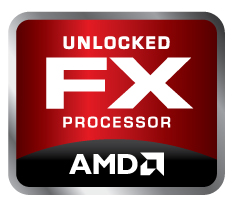Now we are watching as AMD is pushing two new instructions in their new Bulldozer CPUs. These are FMA4 and XOP and are designed to enhance vector and matrix multiplication functions. The way they work is something like the vector design of their GPUs in that they break code down into more manageable chunks for the relatively small memory bus to stuff through the multiple CPU cores in tandem. The only problem is that not many people need or at least are using this. Those that do/are have moved to the much more parallel GPGPU computing systems to get much faster performance returns on these compute functions.
To help increase awareness AMD has gone on something of an underground campaign to let people know that existing compiler technology (GCC and Open64) can already handle these new instructions. At the same time Intel’s own compilers have no support for this just yet and their CPUs (including the Xeon line) also do not include these two instructions. Of course it could be said that with the memory and caching performance found in most Intel CPUs these are not necessarily needed, but it does seem that AMD has something on Intel for a change.
Now the question is; can AMD get these new instructions adopted? In the past they have tried to work up enthusiasm for the Vec5 architecture in the gaming world without much success and we have a feeling that the same may happen here. If it does fail to take off then Intel has lost nothing. On the other hand if AMD’s new instructions do take off Intel can still probably keep up until they work something into their compilers and silicon. It will be interesting to see how this one plays out especially given the lukewarm performance reviews that the Bulldozer line has been getting so far especially when it comes to memory and caching efficiency.
Discuss in our Forum
Monday, 14 November 2011 20:42
AMD trying to get the word out about FMA4 and XOP
Written by Sean KalinichReading time is around minutes.
 AMD is an interesting company; on the one hand they have some incredible ideas and can really bring some great features to life. Where they sometimes have an issue is bringing them to market and conclusion. One of the reasons for this is their lack of funds. If you do not have enough money to push your products (like Intel and nVidia usually do) then you have to rely on the community to adopt and support your goals. We have watched this happen multiple times with everything from GPU based Physics (the integration of Ageia PhysX onto the X19xx series GPUs) to OpenCL. AMD shows off what is capable and then due to lack of support and money has to step back and watch as the “rich kids” run off with the toys.
AMD is an interesting company; on the one hand they have some incredible ideas and can really bring some great features to life. Where they sometimes have an issue is bringing them to market and conclusion. One of the reasons for this is their lack of funds. If you do not have enough money to push your products (like Intel and nVidia usually do) then you have to rely on the community to adopt and support your goals. We have watched this happen multiple times with everything from GPU based Physics (the integration of Ageia PhysX onto the X19xx series GPUs) to OpenCL. AMD shows off what is capable and then due to lack of support and money has to step back and watch as the “rich kids” run off with the toys.
Published in
News
Tagged under
Latest from Sean Kalinich
- ConnectWise Slash and Grab Flaw Once Again Shows the Value of Input Validation We talk to Huntress About its Impact
- Social Manipulation as a Service – When the Bots on Twitter get their Check marks
- To Release or not to Release a PoC or OST That is the Question
- There was an Important Lesson Learned in the LockBit Takedown and it was Not About Threat Groups
- NetSPI’s Offensive Security Offering Leverages Subject Matter Experts to Enhance Pen Testing